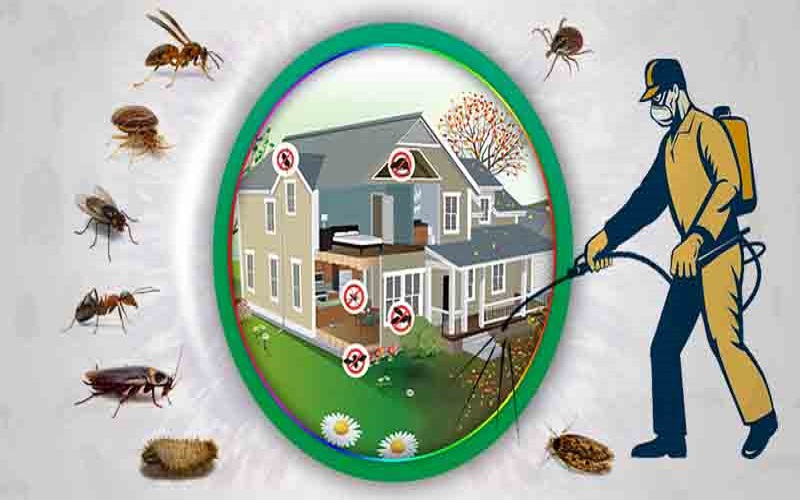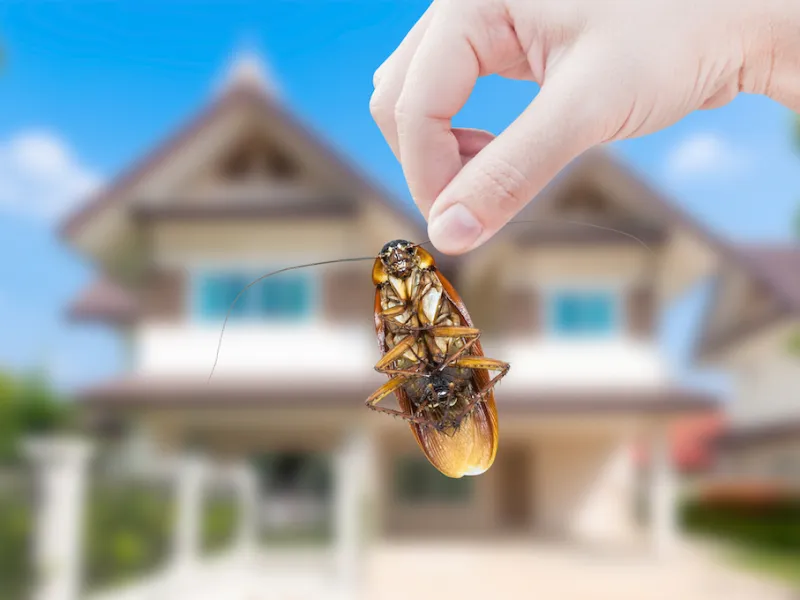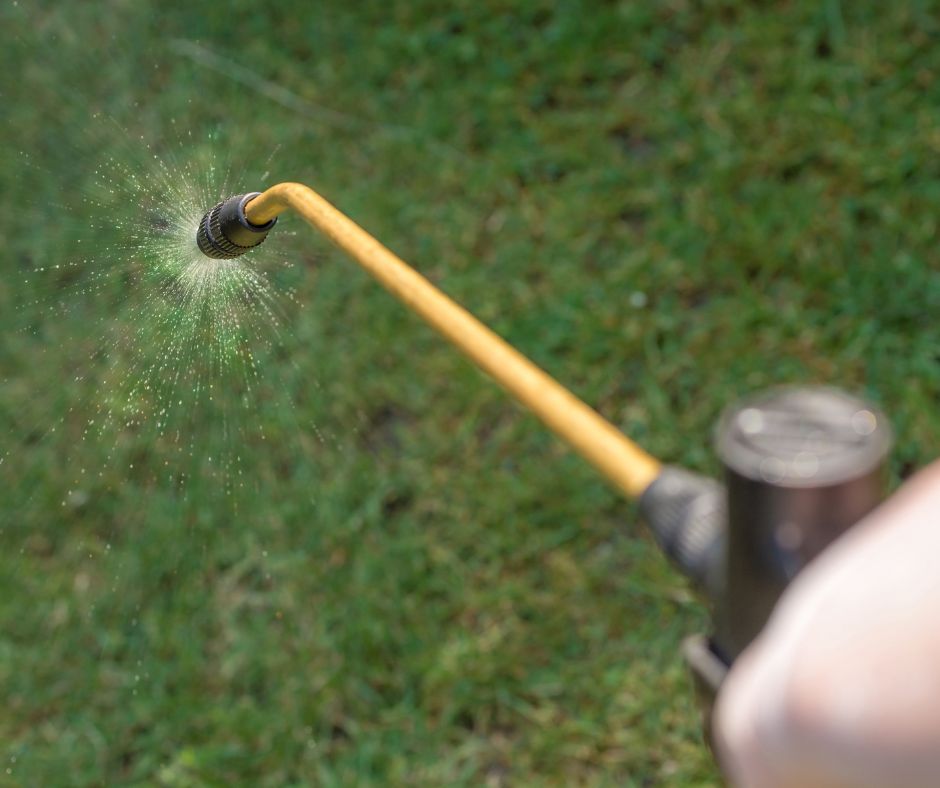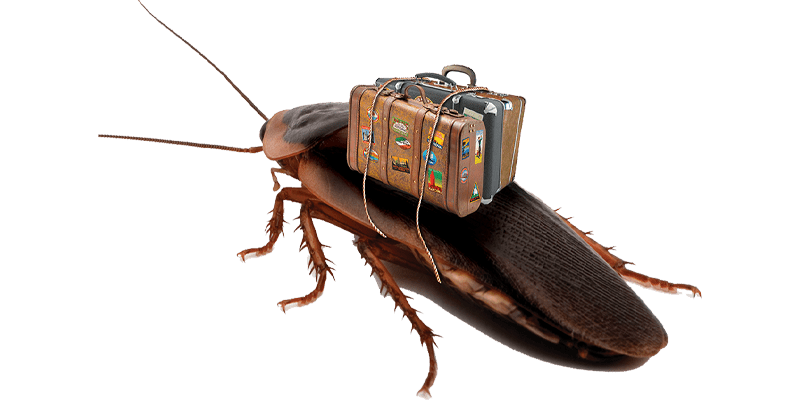Ant Exterminator Near Me: How to Get Rid of Ants Swiftly and Effectively
Uncover the Value of Bug Control in Preserving a Healthy Setting and Therapy Strategies

The Role of Pests in Ecosystems
Insects, usually viewed solely as hassles, play a complex role in communities that is vital for keeping environmental balance. They contribute dramatically to numerous ecological processes, consisting of pollination, vitamins and mineral cycling, and insect control. Several insect varieties, such as butterflies and bees, are vital pollinators for a large variety of plants, which in turn supports biodiversity and food production.
Additionally, parasites serve as prey for many predators, producing a critical web link in food webs. This connection guarantees the survival of various species and aids control populations within ecosystems (Termite treatment Port Charlotte). Additionally, decomposer pests, such as specific beetles and fungis, contribute in breaking down raw material, therefore enhancing dirt and helping with vitamins and mineral recycling.
Conversely, while pests can be advantageous, their overpopulation or intrusion into non-native atmospheres might interfere with these eco-friendly features. This intricacy highlights the relevance of understanding bug characteristics, as effective pest monitoring techniques should consider both their eco-friendly duties and possible influence on human activities. Stabilizing pest presence while reducing injury is necessary for protecting the honesty of environments and making sure agricultural efficiency.
Health Threats Related To Insects
The presence of pests in various environments expands beyond their environmental roles, as they additionally present significant health and wellness dangers to animals and people. Many parasites, including rats, bloodsuckers, and insects, are service providers of conditions that can have major wellness effects. For circumstances, rats are recognized to transmit hantavirus and leptospirosis, both of which can cause extreme breathing and renal concerns, respectively.
Bugs such as ticks and insects are well known for spreading vector-borne illness like malaria, dengue fever, and Lyme illness. These health problems can result in high morbidity and mortality prices, particularly in prone populations. Furthermore, parasites like bedbugs and roaches can aggravate allergic reactions and bronchial asthma, adding to respiratory problems in individuals, particularly those with pre-existing conditions.
Moreover, the existence of pests can cause psychological tension and pain, influencing overall wellness. Contamination of food and surfaces by parasite droppings and continues to be can bring about foodborne health problems, highlighting the relevance of keeping sanitary problems. As a result, recognizing the wellness risks connected with parasites is important in acknowledging the requirement of reliable bug monitoring techniques to secure animal and human health.

Advantages of Reliable Bug Control
Reliable bug control is crucial for keeping a secure and healthy and balanced setting, as it regularly mitigates the various risks connected with pest infestations. One of the key advantages of effective insect administration is the decrease of health threats.
Furthermore, efficient insect control safeguards residential property and frameworks from damage. Several try this out pests, like termites and woodworker ants, can create substantial architectural damage that may need costly fixings. By proactively taking care of these services, infestations and home owners can secure their investments.
An additional significant advantage is the renovation of total high quality of life. A pest-free setting contributes to psychological wellness and decreases anxiety connected with problems. In addition, efficient pest control fosters a more secure setting for kids and pets, guaranteeing that homes continue to be shelters devoid of disease-causing organisms and harmful chemicals.
Common Insect Control Strategies

In the world of parasite administration, different techniques are utilized to battle infestations properly. These methods can be extensively classified into 3 main strategies: social, mechanical, and chemical controls.
Cultural control entails modifying practices to minimize bug facility, survival, and reproduction. This might include crop turning, proper cleanliness, and environment control, which collectively produce an environment less helpful to pest expansion.
Mechanical control utilizes physical approaches to remove insects (Termite treatment Port Charlotte). Strategies such as catches, barriers, and vacuum cleaners are generally utilized to straight eliminate insects from a location. This technique is particularly effective for managing rodents and pests without making use of unsafe chemicals
Chemical control includes the application of chemicals to handle insects. These materials can be classified into fungicides, insecticides, and herbicides, each targeting particular kinds of parasites. It is vital to utilize these chemicals deliberately, adhering to safety and security standards and laws to reduce potential harm to non-target varieties and the atmosphere.
Each bug view it now control technique has its advantages and constraints, and often, an incorporated strategy combining several methods yields the most effective lead to maintaining a pest-free setting.
Lasting Pest Administration Practices
Sustainable bug administration techniques encompass a variety of techniques designed to minimize environmental impact while properly controlling insect populations. These techniques prioritize making use of ecologically friendly approaches over chemical pesticides, therefore reducing the danger of harm to non-target species, including helpful pests, wildlife, and people.
Integrated Insect Administration (IPM) is a cornerstone of sustainable methods, combining biological, social, mechanical, and chemical strategies to handle pests. Organic control includes presenting natural killers or parasites to subdue insect populaces. Cultural techniques, such as crop turning and polyculture, interfere with pest life cycles and boost environment resilience.
Mechanical methods, such as catches or barriers, can properly prevent insect gain access to without chemical treatment. Additionally, preserving healthy communities with appropriate dirt monitoring, plant wellness, and biodiversity can naturally mitigate pest concerns.
Education and understanding are essential elements, equipping communities and people to acknowledge parasite risks early and carry out safety nets. Termite treatment Port Charlotte. By promoting an all natural strategy that balances bug control with ecological integrity, sustainable parasite management practices not just safeguard plants and frameworks yet likewise contribute to a healthier atmosphere for future generations
Conclusion

Recognizing the visit this site right here health threats associated with insects is important in recognizing the requirement of reliable pest management strategies to secure human and animal health and wellness.
Reliable parasite control is necessary for maintaining a healthy and risk-free environment, as it regularly mitigates the many risks linked with insect problems.Integrated Parasite Administration (IPM) is a foundation of sustainable methods, incorporating organic, cultural, mechanical, and chemical techniques to handle bugs. By understanding the function of pests, acknowledging connected wellness dangers, and utilizing varied therapy methods, a sustainable approach to pest administration can be achieved. Integrated Pest Administration (IPM) stresses an alternative methodology that minimizes injury to helpful microorganisms while successfully controlling bug populaces.